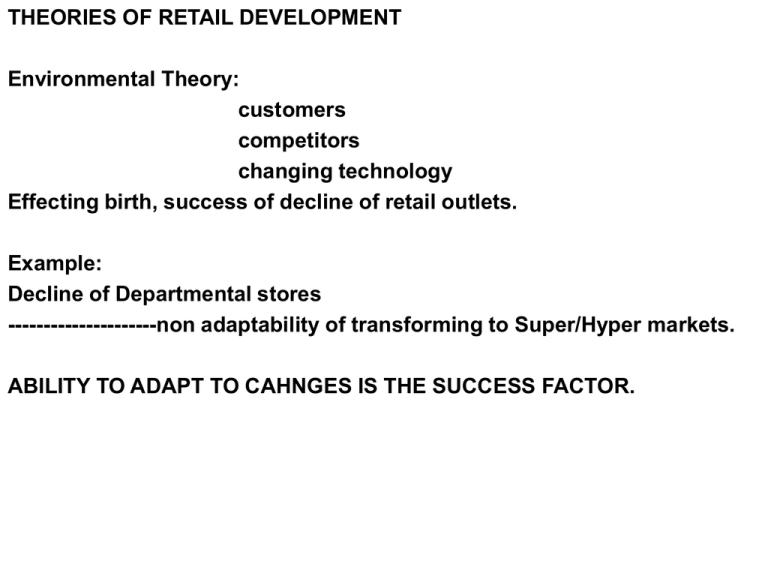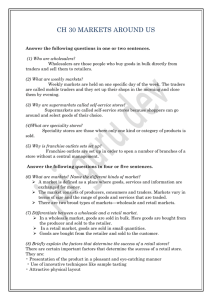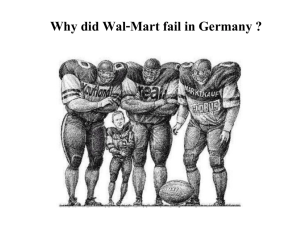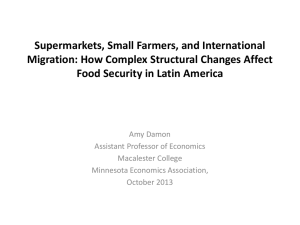THEORIES OF RETAIL DEVELOPMENT Environmental Theory
advertisement

THEORIES OF RETAIL DEVELOPMENT Environmental Theory: customers competitors changing technology Effecting birth, success of decline of retail outlets. Example: Decline of Departmental stores ---------------------non adaptability of transforming to Super/Hyper markets. ABILITY TO ADAPT TO CAHNGES IS THE SUCCESS FACTOR. Cyclical Theory: entry phase Low status & price, minimum services, limited product offers, poor services. trading up phase Expensive facilities, higher rents, more locations, higher prices, more products. vulnerability phase Declining ROI, myopic by nature, scrambled merchandising. Example: Departmental stores started as successful stores, but were cut by supermarkets and discount stores. Conflict theory: Thesis Individual shop owners open shops throughout India. Antithesis Opposed to Thesis. Departmental stores comes up as competitors to challenge the small shops throughout India. Synthesis Blending of Thesis & Antithesis. Supermarkets & hypermarkets have come up. Synthesis becomes Thesis for another round of revolution. Concept of Life cycle in retail: Innovations More convenience, few competitors, rapid growth rate, moderate profitability, lasts upto 5 years. Growth Increase in sales, few competitors emerge, gains leadership, high investments, high profitability, lasts or 5 – 8 yrs. Maturity Competitive pressure, decreased growth rate, declining profits, unattractive offers. Decline Looses competitive edge, negative growth rate, profits very less. Example: Shopper’s Stop opened outlet for clothing. Later on Westside, Clobus and Lifestyle came into the market, so it had to diversify to jewelry, cosmetics & acquired Crosswords. RETAIL FORMATS: Depends upon: products / services offered pricing policy the format operates communication mix on these parameters. store size looks of store location of store CLASSIFICATION OF RETIAL FORMATS: Store based formats Non store based formats independent retailer chain stores franchise leased departments consumer cooperatives convenience stores supermarkets hypermarkets specialty stores departmental stores off price retailers catalogue showrooms discount dept. stores category killers warehouse clubs INDIPENDENT RETAILERS owns one store advantage – easy entry one to one relation with customers no economies of scales less bargaining power CHAIN RETAILER 2 or more outlets under common ownership similar merchandise similar ambience, ads, promotions more bargaining power ads and promotions are cost effective difficult to control all stores at once FRANCHISING contractual agreement use the format for a fees trademark / product franchise – Archie’s stores business format franchise – Mc Donald’s







